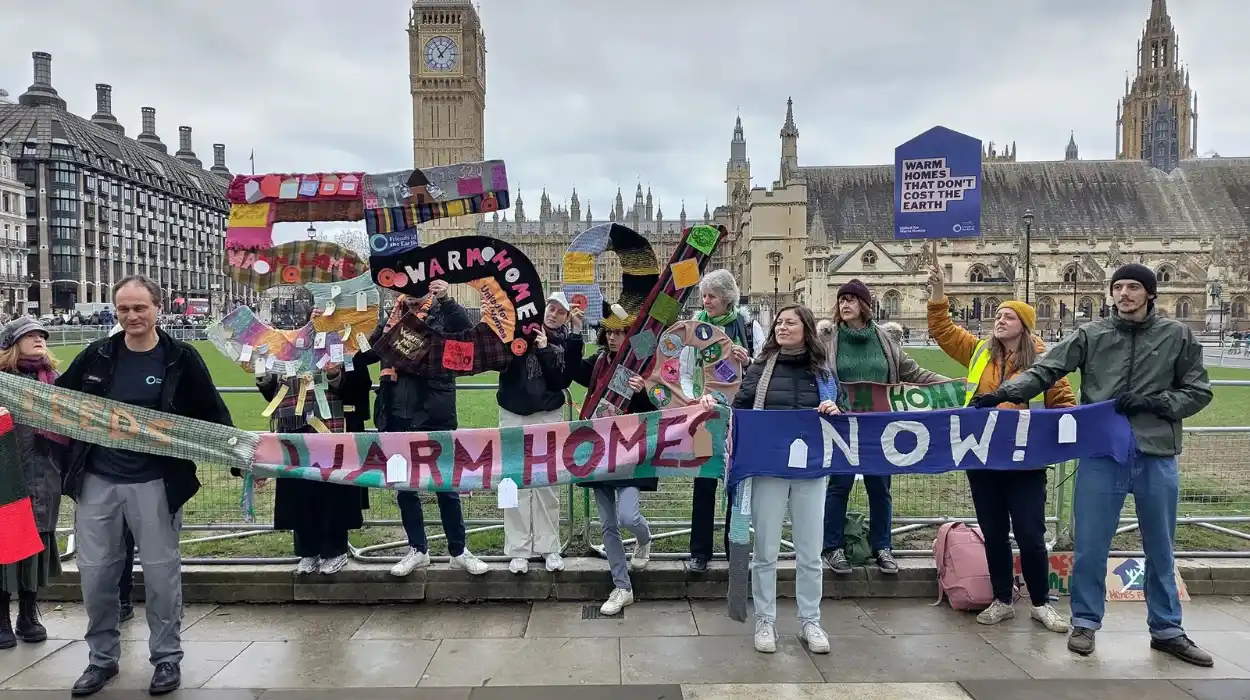Haringey (Parliament Politics Magazine) – Haringey activists warn of rising energy costs and fuel poverty, urging action on cold homes. Friends of the Earth campaigners took their concerns to Westminster.
Haringey based Friends of the Earth activists participated in a nationwide lobbying of Members of Parliament in Westminster to call for more aggressive measures to address energy waste and cold homes.
During their demonstration in Parliament Square, the activists wore enormous scarves to draw attention to the problem.
They then had the opportunity to speak with a staff member from Tottenham MP David Lammy‘s office.
Quentin Given, coordinator of Tottenham & Wood Green Friends of the Earth, said:
“Gas central heating is the biggest source of climate change gas in Haringey.
Forty percent of homes in Haringey are privately rented where insulation is often poor and so energy bills are higher.
Friends of the Earth is asking for more government investment in a street-by-street insulation and green energy programme, and for tougher energy efficiency standards for private rented homes.”
They added that to illustrate the issue, activists brought woolly scarves branded with messages about cold homes and the need for action.
How are cold homes in Haringey worsening fuel poverty and health issues?
Cold homes make fuel poverty, which affects a sizable portion of Haringey households, worse. The goal of the Affordable Energy Strategy is to lower the proportion of households that struggle to pay for sufficient energy and heating.
Many health problems are associated with cold homes, especially for vulnerable groups like the elderly, children, and people with underlying medical illnesses. The plan acknowledges that insufficient heating can result in more hospital stays and chronic health issues.
According to the 2023 State of the Borough report, a sizable portion of Haringey’s privately rented homes have been classified as unfit for living, which exacerbates the cold home problem. In 2020, about 21% of privately rented residences were deemed to be substandard.
Residents are further burdened financially by this increase in housing costs, which makes it more difficult for them to pay for proper heating.


